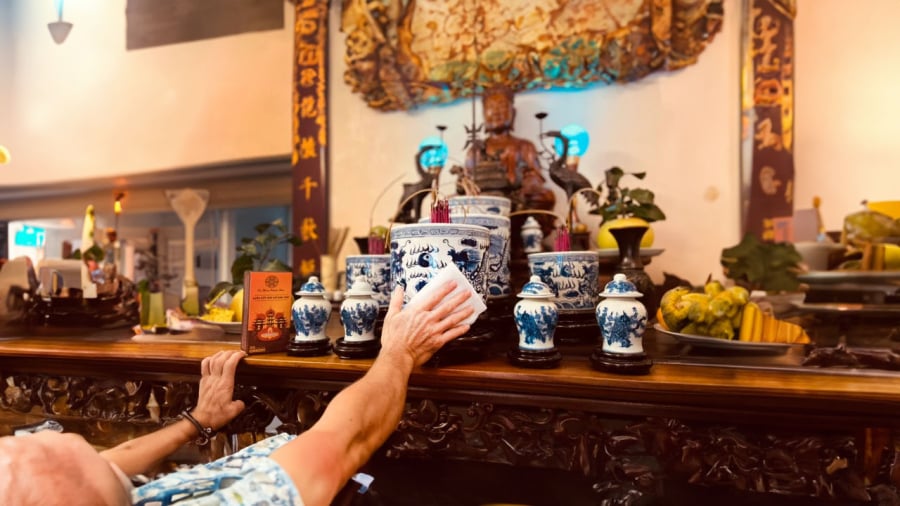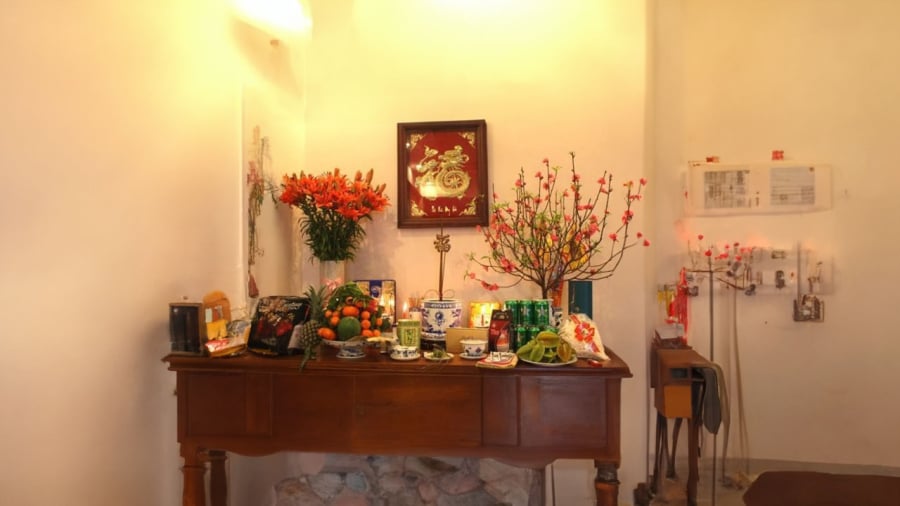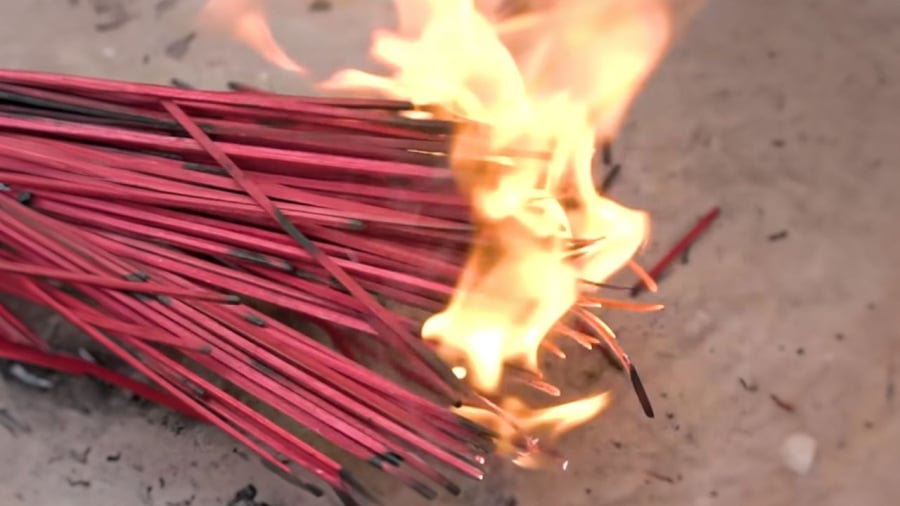Dusting the altar, cleaning the incense bowl is a common activity in the Lunar December, when the Lunar New Year is approaching.
Dusting means cleaning the altar. Normally, families clean the altar but only dust around it without touching the incense bowl. In the Lunar December, when worshipping the Kitchen God and preparing for the new year, many families clean the altar, wipe the incense bowl, and replace the inner core of the incense.
Trimming the candle wick is a ritual of trimming the burned part of the incense throughout the year to make the new year’s incense lighter. If the candle wick is not trimmed, the incense will be difficult to burn and may cause a fire.

Which day should it be done in the Lunar December?
Normally, families do it on the 23rd day after offering incense to the Kitchen God. After that, they clean the altar, trim the candle wick, and replace the incense core.
Many families usually do it on the 23rd day. However, some families do it before or after that day, as long as it is in the Lunar December, depending on the arrangement of the family and the local customs and beliefs.
According to the traditional calendar, there are some favorable days to trim the candle wick and clean the altar in preparation for the Year of the Wood Rat 2024: the 20th day of the Lunar December (equivalent to January 11, 2024, in the Gregorian calendar) is an auspicious day; the 26th day of the Lunar December (equivalent to January 17, 2024, in the Gregorian calendar) is a good day to trim the candle wick and clean the altar.
Normally, families should do it before the 29th day of the Lunar December.

Notes when performing altar cleaning and candle wick trimming
When cleaning the altar, dusting the incense bowl, the owner should wear neat and tidy clothes, showing respect for ancestors.
Before starting, make a sincere offering of incense to seek permission from the ancestors to clean the altar and the incense bowl.
Use clean tools to clean the altar and catch the ashes. The incense ash and trimmed candle wick should be burned, not thrown into the trash. After that, sprinkle the ash into the river or let it cool down before burying it near the base of a tree.
The altar should be wiped with warm water and scented water to make it clean and fragrant. Especially for wooden altars, using cold water to wipe will cause a bad smell and damage them quickly. The cleaning tools must be clean.
After discarding the ash, the incense bowl should be washed with clean water. Then use a clean cloth to dry it.
When trimming the candle wick, keep 3-5-7 old candle wicks in each incense bowl, but remember where those candle wicks are so that when using new ashes, you can insert them into the old bowl to avoid confusion.

When discarding the old ashes, spoon them out instead of pouring the incense bowl upside down.
When performing the ritual, be gentle and avoid making noise, laughing, or joking. Avoid dropping or breaking items randomly.
Remember the positions of the incense bowls, so when placing them back on the altar, they are placed correctly, avoiding disorder.
After finishing, put the incense bowl back and light new incense to invite ancestors to celebrate the Lunar New Year.
Cleaning the altar and the incense bowl is a good tradition of Vietnamese people, so everyone needs to pay attention when performing it. The elderly in the family can do it without the need for a feng shui master.
This information is for reference and contemplation purposes.

































